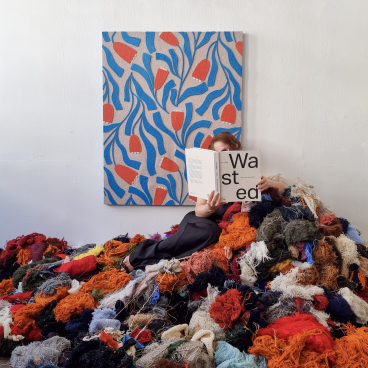Design Council's Design for Planet Festival: Our top takeaways.
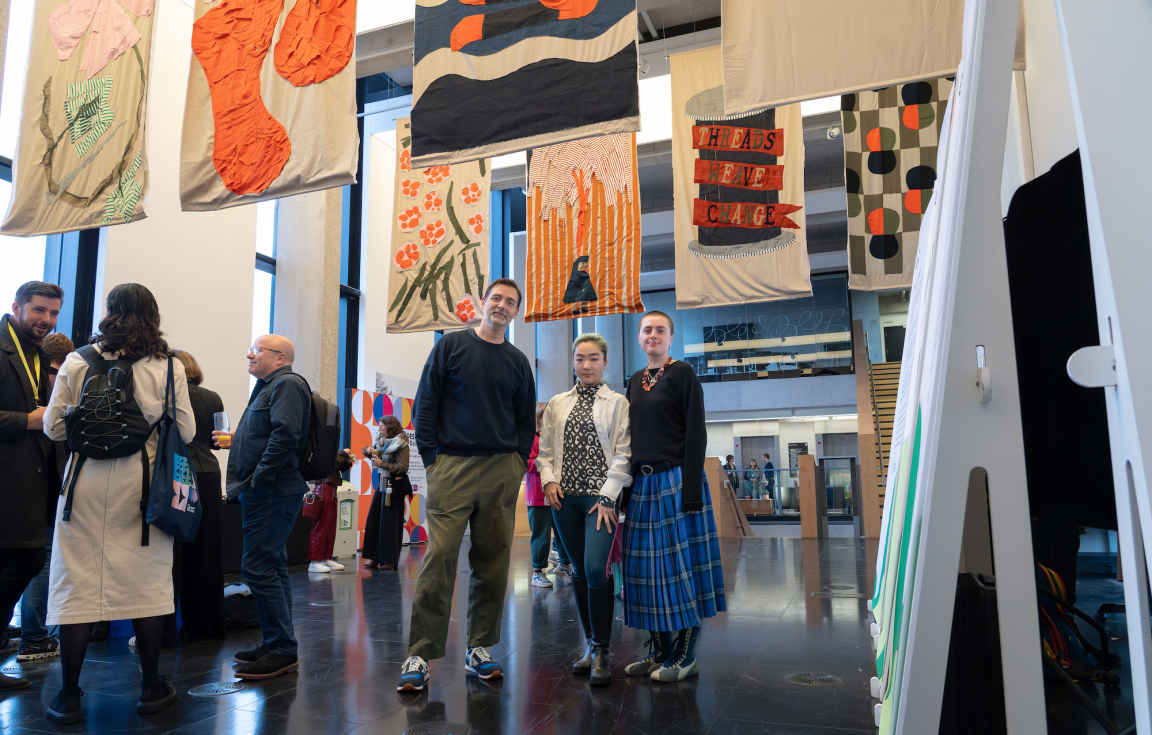
Image credit: Feral Films / used courtesy of Design Council
"We have to find answers - and the people to find them are creative people."
This was a comment made by Martyn Evans, creative director, LandsecU+I, at Design Council's Design for Planet Festival last week. A statement which set the tone for this fourth edition of the annual event, and personally, we couldn't agree more with.
Design for Planet brings together delegates in person and online to converse around the crucial role we all play in creating a more sustainable world. And this year, it was hosted by Manchester School of Art.
To say the talks and discussions were inspirational would be an understatement. And across the board, creativity was raised as being what's required to replace existing systems with better ones for a brighter future.
An underlying sense of positivity ran throughout the course of the day - a sentiment not often associated with sustainability. And this even extended to the setting, where giant banners crafted by MSA students from Community Clothing offcuts hung from the ceiling. Rather than focus on doom and gloom, the emphasis was on improvement. Looking at what we have and what's needed in the future, to collectively help forge the path ahead.
Here are some of the points that particularly resonated with us...
"We must reframe how we think about 'new'. It should be better, not new." - Minnie Moll, chief executive, Design Council
Addressing the problem of 'waste', Minnie suggested we must end our obsession with 'new'. Designers should be building things to last.
Business she believes can do good - because, ultimately, "it has to". "We must have a seat for planet at the boardroom table", she commented.
The key to change? Strong leadership and collaboration, Minnie believes. Though the former could do with more support on a global scale.
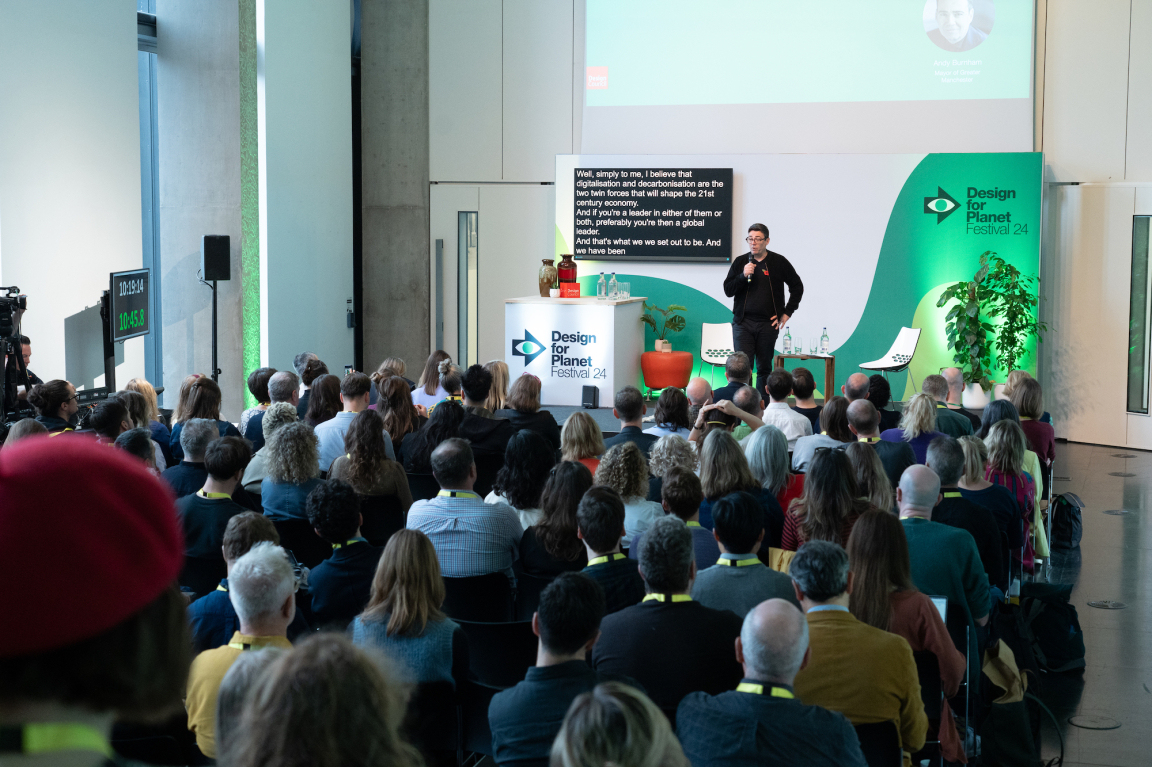
Image credit: Feral Films / used courtesy of Design Council
"Designing for planet means building for public transport." - Andy Burnham, Mayor of Greater Manchester
Manchester has always done things differently - a reminder which came from Martyn Evans, director, Manchester School of Art. And that's the trajectory that followed with Mayor of Greater Manchester, Andy Burnham's keynote speech.
Seeking to be leaders in digitalisation and decarbonisation, Andy admits that while the city has not always been renowned for being 'green', he and his team are committed to building on the great work of Sir Howard Bernstein and Sir Richard Leese to embrace innovation in sustainable solutions.
The key to Andy's plan is transport - linking all corners of Manchester through an affordable and efficient tram system, while capping bus fares at £2 per day to empower people to travel communally.
Thousands of low carbon homes are planned for the heart of Stockport - further extending the city borders, a major plan for retrofitting is on the horizon, and retail is being revitalised through regeneration initiatives.
All of this will see social disruption, but Andy believes Manchester's attitude to embracing change has always been open armed.
"Net Zero could be done in the wrong way", Andy said. To hit the targets, "someone has to go out first." That 'someone' he believes should be Manchester. "We are on a clear path to a greener city region."
"We should only make stuff from materials we understand the provenance and performance of." - Patrick Grant, founder, Community Clothing
Having just published a book - 'Less' - on the very topic of crafting products to last, Patrick Grant, founder of Community Clothing and judge on the BBC's Great British Sewing Bee, anchored his talk in buying quality and owning less.
To begin, Patrick asked us to consider a time before consumerism, pre-18th Century, when consumption was considered a deadly sin. During this time, people would trade with one another directly, with no intermediary gaining from the skill of one person or the demand of another.
We have always made things, Patrick said, and not only that, but it's "innately human to make things well." But since the emergence of corporations, something has been lost along the way. And that's two-fold. "The people who make things don't sell them. And there is a missing education piece about why stuff needs to last."
Patrick stressed the point, though, that things can change - "fast fashion can't exist if we don't buy the stuff".
This ideology spurred the founding of his own company, Community Clothing, which operates 48 factories around the UK, provides jobs to local craftspeople, and only uses materials with which the provenance and performance is understood. "There is value in every single aspect", Patrick commented.
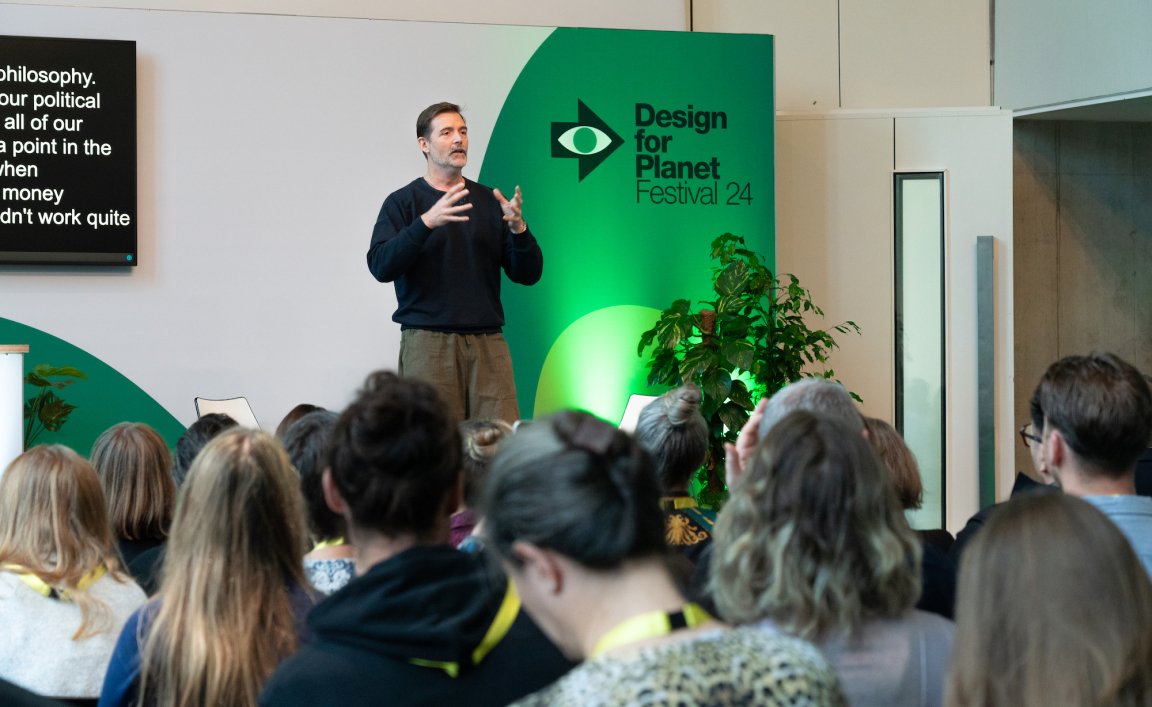
Image credit: Feral Films / used courtesy of Design Council
"There is power in our supply chains." - Tanya Popeau, director, Synthesis
A former consultant and advisor to the United Nations, Tanya Popeau now works with the world’s leading corporates, non-profits, government agencies, and academic institutions to "design breakthrough innovations to global challenges". Her clients range from HSBC to Amazon, and the UK government.
The main takeaway from her talk was refreshing - sustainability should be viewed as an opportunity for businesses - it can drive growth and profit while instigating change.
To design for this change - to make sustainable impact - Tanya stated the challenge must be deconstructed and reframed. And involvement from end users is crucial, as they are the key to driving action.
Global cross sector collaboration and open sourcing are critical. Tanya noted the sharing of supply chains is often harnessed during times of conflict. But - "it needs to happen all the time", she believes.
"Sustainability needs storytelling - not dry reports." - James Vaccaro, CEO, RePattern
In a discussion between Martyn Evans, creative director, LandsecU+I, and James Vaccaro, CEO, RePattern.org, moderated by Katie Hill, co-chair, board of directors, B Lab Global, a call for passion in sustainability rang out loud and clear.
Creatives - architects and designers - Martyn feels can bring concepts to life to carry people along on the journey to a more sustainable future. But people require evidence. And that can, and should, exist and be reflected in our built environment.
So an element of testing and experimentation is required, Katie suggested, to mitigate perceived 'risk' surrounding more sustainable solutions.
This, James believes, is "hard" because - "someone has to pay". Perhaps the reason we are where we are in the climate situation as it stands; trial and error doesn't equate to quick wins.
However, "we won't make change company to company - we need to think systemically", commented Katie.
The way to catalyse this systematic shift, Martyn believes, is design - "If you believe in the power of design, push it to the front of the table. It drives a systemic approach."
But how do we inspire people? We bring sustainability to life. James said, "There's a lot of dull stories being told, a lot of sustainability reports quite soon will probably be written by AI and be so long they'll only be read by AI. It's a serious problem. We have to drive storytelling, get a fizz and an energy we can work with."
And the story must be one of positivity, Martyn added. "Let's change the conversation from solutions feeling 'less than' to celebrating the joys of finding solutions."
"We should reframe sustainability as an opportunity", concluded James.
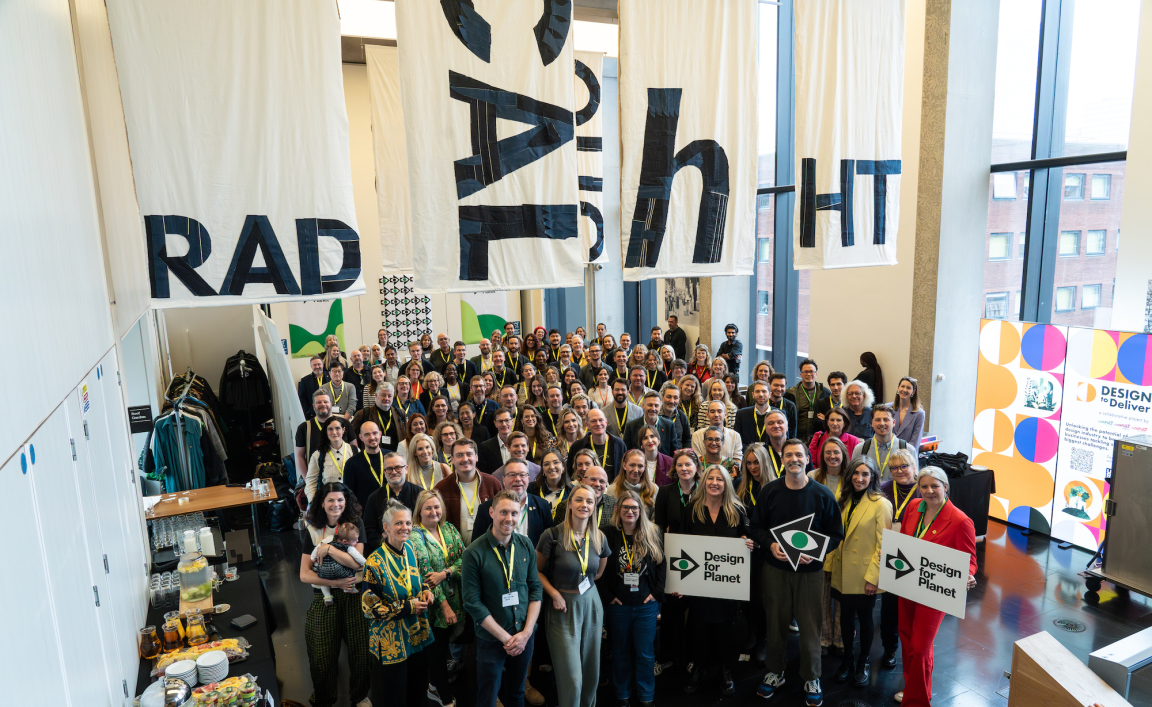
Image credit: Feral Films / used courtesy of Design Council
Huge thanks to Design Council for inviting us to be a part of the conversation. You can discover more about Design for Planet here. We are continuing these discussions with our upcoming 2025 biomaterials guide, and a focus on carbon in the coming weeks. Stay tuned.



